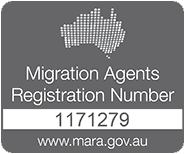
Australia aims to attract skilled migrants to help plug skill gaps, and provides particular incentives to people who choose to move to regional or rural areas.
One of the biggest frustrations in recent years for would-be visa applicants has been the treatment of the pre-2012 Skilled Visa applications. Before 2012, the number of occupations on the Skilled Occupation List was arguably generous, resulting in a flood of applications from would-be migrants. Coupled with this, it was possible for anyone to pay for and lodge a skilled visa application – meaning that the Department of Immigration was then required to assess and process the application.
The so-called “pipeline” stretched to tens of thousands of applications, overwhelming the Department’s resources, and resulting in significant delays for applicants.
In 2012, a streamlined system called Skill Select was introduced, to coincide with a slimming down of the Skilled Occupation List. Now, would-be skilled migrants must “express interest” in applying for a visa. Pre-requisites such as English tests and skills assessments need to be completed before lodgement of the expression of interest. The computerised departmental systems will periodically ‘select” applicants from the pool and invite them to apply for a visa, in accordance with ceiling caps on occupations. It’s a process that results in a much more equitable and manageable flow of skilled migrants. Plus, the Government can change the occupations in demand at any time, meaning that people who might come to Australia and struggle to find work, might find it more difficult to be invited for a visa.
With the new system working well, the Government has been under increasing pressure to deal with the “pipeline” of pre-2012 applications which were deemed “Priority 5” – the lowest processing priority. Last week the Government finally announced that the applications in the pipeline will be “capped and ceased”, meaning in effect that they were deemed never to have been made in the first place. Many of these applications were family sponsored skilled visas, for which an applicant was sponsored by a family member who is a permanent resident or citizen of Australia.
While this is a devastating blow to affected people and their families, many of whom have been waiting up to 7 years for a result on their application, the silver lining is that they may apply for a refund of fees.
When one door closes, another one often opens. More specific targeting of in-demand skills, and more efficient processing is aimed at leading to the best outcomes for Australia, including hard to fill vacancies in regional and remote areas.
Are YOU affected by this? There may be other visa options for you. Contact the expert team at Emergico Migiration, to chat about possible avenues.




